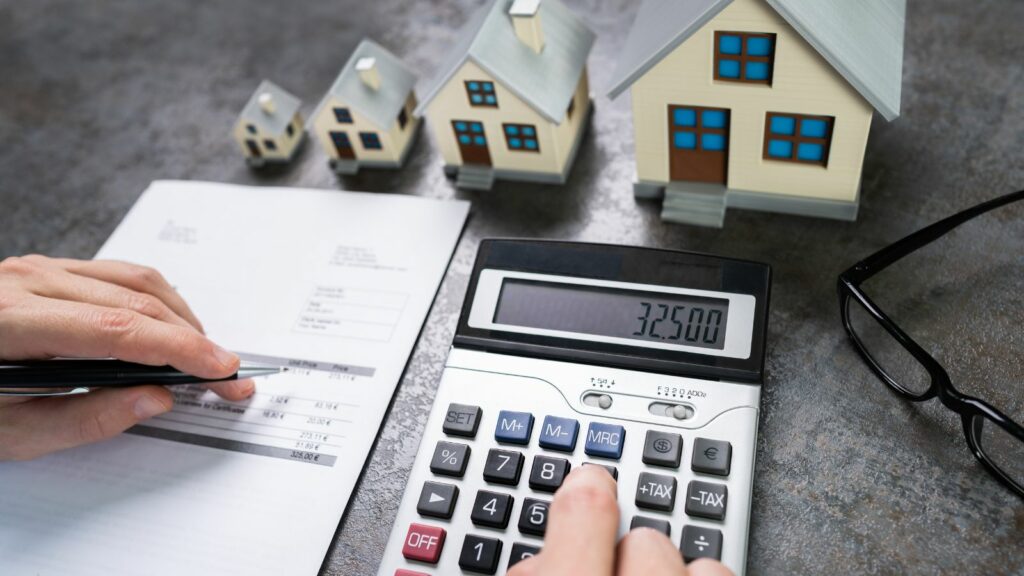Buying a house is no small feat – not only does the process encompass understanding countless documents, considering loan options, and making intelligent decisions for your financial future, but it also comes with an array of costs. One of the biggest questions home buyers have when closing on their purchase is how much they need to factor in for closing costs. Understanding all the factors that affect these costs and what you can expect as a buyer will help ensure that you make confident decisions throughout every step of your home-buying journey. Here are some of the costs you’ll need to factor in when buying a house.

Earnest Money Deposit
An earnest money deposit is an essential component in the home-buying process. It’s a cash-out-of-pocket expense that solidifies the buyer’s commitment to purchase a particular property and shows good faith that they are willing to invest in the future of their new home.
The amount of the earnest money deposit can vary but is typically 1 – 3% of the home’s purchase price. Generally, this deposit is due when creating an offer or signing a contract with the seller.
Once the sale of the home has been finalized, the earnest money is released from escrow and applied towards any closing costs or down payment specified in your agreement.
What is a Down Payment?
A down payment on a property is the initial payment you make to begin your loan. The amount of money needed for a down payment varies based on the type of loan and sometimes the state or property being purchased.
Conventional home mortgage loans require a 20% down payment – this is typically the amount banks prefer, as it is viewed as lower risk by lenders.
For other types of loans, such as those that relate to government-sponsored programs, the required percentage can be much lower.
When purchasing a house, you will make your down payment at closing – this finalizes your new homeownership and gives you immediate ownership of your home.
Understanding Closing Costs
When you consider the cost of buying a home, closing costs can sneak up on you when you least expect it. In general, closing costs are typically between 3-6% of the purchase price of your home. For example, if you buy a $250,000 home, the closing costs could be anywhere from $7,500 to $15,000.
It is imperative to remember that most lenders won’t let you finance these costs; if they do make an exception, you will pay more in interest and have increased monthly payments. Be sure to consider this, so you don’t find yourself in a financial bind after purchasing your new house.
Here are some of the most typical closing costs you can expect to pay:
Application fee: The cost of processing your loan application.
Credit report: the fee for obtaining a credit report on you.
Loan process: This covers the cost of processing your loan application and documents.
Underwriting: This applies to the cost of researching and verifying your loan application and documents.
Title search: Pays for searching for any liens on the property.
Title insurance Provides protection against financial loss due to title defects or disputes.
Taxes & fees: Property taxes, state transfer tax, county recording fees.
Inspection fees: Home inspection, pest inspections, and radon tests.
Appraisal: Covers the cost of appraising the property to ensure its market value.
Survey fees: The fee for drawing a map of the property’s boundaries.
Homeowner’s Insurance: This covers the cost of purchasing a homeowner’s insurance policy for the property.
Pre-paid points: An optional fee that allows a buyer to purchase a lower interest rate.
Moving Expenses
Moving into a new home is an exciting endeavor — but it can also be expensive. As you plan and budget for the closing costs, be sure to factor in the expenses associated with moving, too. This could include security deposits for sewage, water, electricity, and cable, plus supplies such as moving boxes, packing tape, and bubble wrap — not to mention any fees from professional movers or rental trucks you may need.
Finally, don’t forget about all the furnishings and necessities needed to set up your new house — things like shower curtains, trash bins, laundry baskets, and kitchenware that will be vital for comfortable daily living.
With all these items properly accounted for in your budgeting plan, you’ll be ready to move into your new home worry-free!
Emergency Fund Savings
An emergency fund is an important part of being a homeowner. It’s a savings account that you’ll use as a financial cushion in case of illness, job loss, or other difficult situations.
When owning a home, it’s in your best interest to have enough money saved for 3-6 months of basic expenses if needed. And don’t forget about potential unexpected household repair costs, such as fixing a leaky roof or replacing a water heater. While this isn’t the most exciting aspect of homeownership, having money tucked away gives you the peace of mind and knowledge that if something were to happen, your finances would be secure.
Building an emergency fund is an essential part of budgeting and taking control of your finances as a homeowner.
You also don’t want to be house poor. A house is a big purchase, and you want to make sure you can still enjoy life and have some savings after your purchase.
Conclusion
Be sure to take the time to calculate all these costs ahead of time so that you don’t find yourself in a financial bind after making your home purchase. With the right budgeting plan, you can make sure that you have enough money to cover all the costs associated with closing on a house and be comfortable in your new home. With proper planning and budgeting, you can save yourself from financial stress down the line.
Talk with your trusted real estate agent to gain more insight into the estimated closing costs for your specific region. With their help and guidance, you’ll be on track to add a new home to your life without breaking the bank.

